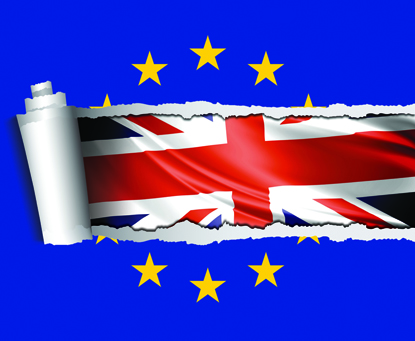Analysis

What does Brexit mean for pharmacy?
In Analysis
It’s time to delve deeper into health discussions. Broaden your understanding of a range of pharmacy news and topics through in-depth analysis and insight.Bookmark
Record learning outcomes
Uncertainty seems to be the only certainty in the wake of the UK’s decision to leave the European Union. Meanwhile, pharmacy, medical and health organisations are trying to reassure stakeholders, while seeking reassurance from government for themselves.

The Royal Pharmaceutical Society has assured members that it will continue to work with partners both within and outside the European Union to ensure the UK remains a leading nation for innovation in pharmacy practice and pharmaceutical science.
“We will continue to work constructively and collaboratively with international partners on areas such as medicines safety, antibiotic resistance, medicines information, as well as improving the capacity and capability of the pharmacy workforce to help address these global challenges of our time,†it said in a statement.
The Society has pledged to do all it can to ensure that pharmacists and pharmaceutical scientists from all countries continue to feel welcome in all pharmacy settings within the UK.
GPhC chief executive Duncan Rudkin said it was too early to say what, if any, the legal implications of Brexit might be for pharmacy regulation. “Current arrangements, including for EU pharmacy professionals already registered or training in Britain, and for those seeking to register or train in Britain, remain in force,†he said. “This will continue to be the position unless and until the law is changed.â€
The pharmaceutical industry in this country faces immediate challenges around future investment, research and jobs, according to Mike Thompson, chief executive of the Association of the British Pharmaceutical Industry. “With that being the case, we are committed to working closely with the Government to agree what steps need to be taken to send a strong signal that the UK is open for business.â€
Maintain the system
The single European marketing authorisation reduces cost and complexity for manufacturers, facilitating the production and regulation of high quality medicines and their availability to patients, said Warwick Smith, director general of the British Generic Manufacturers Association and the British Biosimilars Association. He urged the Government to do everything possible to maintain this system in negotiations with the European Union.
European marketing authorisations are issued by the European Medicines Agency, currently based in London but likely to leave the country as a result of the referendum. A standalone UK national authorisation procedure may delay access to new medicines for patients in the UK, the ABPI has warned.
Research
Possible effects on pharmacy research and its workforce are wide ranging and beyond direct financial support from the EU, according to Pharmacy Research UK. “As a nation we have benefited significantly from EU funding to support research to drive the development of medicines and to improve patient care,†it said.
“Protecting this investment and ensuring continuity of funding support to UK research will be an essential part of our continued success as a world leader in pharmacy research.â€
The free movement of scientists to and from the EU has enabled the UK to collaborate actively across national borders, enhancing research capacity. “It is vital that this talent continues to be attracted to the UK and that we can continue to work closely with our EU colleagues.â€
Uncertain times required strong leadership, said the New NHS Alliance. “One very real concern is the future of non-UK citizens employed within the NHS. It is essential that clarity and long-term security of employment is established as a priority.†According to a tweet from NHS England, around 55,000 of the NHS’s 1.2 million staff are EU citizens.
Fundamental questions
Doctors have been dragged into a situation that could compromise their ability to practise in a number of ways, and the situation raises fundamental questions about the funding and workforce of a service already in crisis, said Dr Mark Porter, chairman of the British Medical Association.
“We are one profession, we stand by every single one of our colleagues, and we know that the National Health Service is enriched by the contribution of doctors from every country in the world,†he said. “There are many questions already, and many more that have not yet even been considered. This will be the age of unknown unknowns.â€
Brexit is not expected to affect the registration status of any doctor already on the medical register but the GMC will be exploring how doctors from the EU would be granted access to the UK medical register, as well as the implications for UK doctors wanting to work in the EU.
